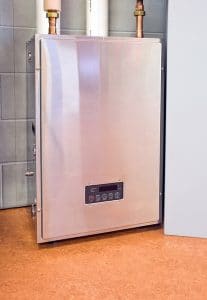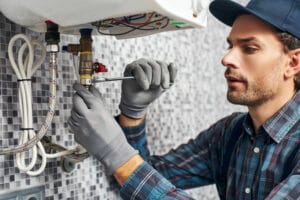Most of us don’t notice our water heaters except when there’s an emergency. They’re a common sight in homes throughout Bergen County, NJ, but they’re usually tucked away in the basement or garage, quietly doing their jobs while get on with our lives. That means that trouble can often catch homeowners by surprise. You can help prepare for problems with your water heater by scheduling regular maintenance sessions, and by looking out for signs of trouble when they appear. Here’s a quick list of 3 of them to show you what we mean.
1) STRANGE NOISES
Detritus can build up in the bottom of your tank, keeping the burners below from heating the water as effectively as they should. A good maintenance session can flush out that build-up, but if it’s left unattended, it can form weird formations that cause the water to gurgle and bubble through it. Other strange noises can include dripping from leaks and hissing through breaches in the pipes.
2) DISCOLORED WATER
When the anode rod in your water heater is used up, it needs to be replaced. Otherwise, the sides of your water heater will start to rust. This can lead to discolored water appearing in your faucets and sinks, especially when you turn the hot water on. If your water heater is more than 15 years old or so, and the discolored water appears in conjunction with other symptoms, it may be time to replace it.
3) LEAKS
A leak is a serious problem with your water heater, and usually indicates that it needs to be replaced. Leaks can appear anywhere, and in some cases – such as when they come from a vale or a pipe leading away from the water heater – they can be corrected by simply replacing the damaged part instead of the whole water heater.
If you spot these signs of trouble, then call BZ Dependable right away for expert diagnosis and repair!



